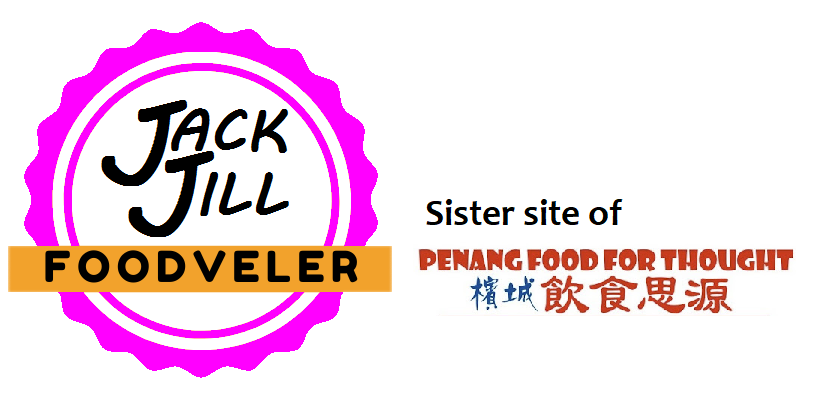 Special thanks to Tofu Village for extending this food review invitation.
Special thanks to Tofu Village for extending this food review invitation.
Tofu Village (豆腐村) is a small restaurant at the intersection of Church Street (Lebuh Gereja) and Queen Street (Lebuh Queen). The eatery specializes in Hakka cuisine (客家菜) based on the owner’s home recipes.
The air conditioned dining area is decorated with potted plants. A “brick wall” on the side presents a homely feeling. While waiting for food to be served, customers can take photos with Tofu Village’s anthropomorphic yong tau foo characters.
Long Thread Moss Stuffed Oyster Seafood Pot (发菜酿蚝仕海鲜煲, RM35.00 for small portion) is considered an auspicious dish and is traditionally served during Chinese New Year. The oyster croquettes are made of dried oysters, fish paste and vegetables wrapped in pig’s caul fat (猪网油).
Hot Spicy Yong Tao Fu (香辣酿豆腐, RM26.00 for large portion) is one of Tofu Village’s bestselling dishes. The pot contains fresh tofu stuffed with homemade fish paste and minced pork. A hint of salted fish is added to the stuffing for added flavor. This delicacy is braised with spicy sauce, resulting in a very satisfying dish.
Due to popular demand, Tofu Village offers a variety of vegetarian dishes too. For instance, Black Bean Vege (黑豆豉焖煲, RM16.00 for small portion) contains tofu braised with fermented black soybeans (黑豆豉). Due to the gravy’s strong taste, this dish should be eaten with rice.
Hakka Rice Wine Chicken (客家黄酒鸡, RM14.00 for small portion) is another signature dish here. The aroma of homemade glutinous rice wine is mouthwatering indeed. Wood ear fungus (黑木耳) lends its crunchy texture, while wolfberries (枸杞) and Bentong ginger provide herbal flavors.
The next dish is Fui Chew Braised Pork With Black Fungus (客家炸肉焖木耳, RM25.00 for small portion). The pork is flavored by a blend of seasonings including fermented tofu (南乳). The taste of this dish may be too intense when consumed directly, so it is usually eaten with rice.
Yam Abacus (客家算盘子, RM9.50) is prepared from mashed taro (芋头) and tapioca flour. The dough is kneaded by hand and is rolled into small pieces that resemble beads on an abacus. The chewy pieces are then stir-fried with minced pork, dried shrimps, mushrooms and soy sauce.
Hakka noodle can be served dry or with mala sauce (麻辣酱). The latter is recommended if you are fond of its numbing spiciness. The bowl of Malat Hakka Noodle (麻辣客家面, RM5.50) is also topped with savory braised pork (卤肉).
As for drinks, Organic Nutmeg Plum Juice (有机豆蔻酸梅汁, RM5.50) is prepared to the ideal level of sweetness. Tanginess of pickled plum does a great job in quenching thirst. In addition, Tofu Village also serves fruit juices, beer and ice blended desserts.
Compared to other regional Chinese cuisines, Hakka dishes are time-consuming to prepare. This explains why there are few Hakka restaurants around, much less ones that do well like Tofu Village. Quite surprisingly, Tofu Village is also popular among tourists. This is mainly due to the fact that the restaurant serves vegetarian dishes.
Name: Tofu Village (豆腐村)
Address: 88, Lebuh Gereja, 10200 George Town, Pulau Pinang
Contact: 04-251-9512
Business hours: 11:30am-9:30pm, closed on Mondays
Website: https://www.facebook.com/TofuVillage.Restaurant
Coordinates: 5.41911 N, 100.33980 E
Directions: Drive along the one-way Church Street (Lebuh Gereja) till nearly the end of the road. Tofu Village is located on the right, exactly at the intersection with Queen Street (Lebuh Queen). Street parking is available at Church Street, Queen Street, Pitt Street (Jalan Masjid Kapitan Keling) and other nearby roads, but parking space may be limited on weekdays.














